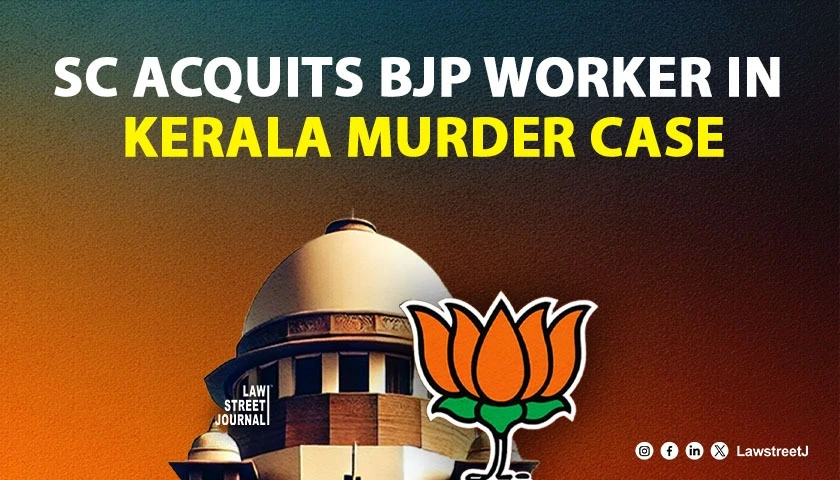New Delhi: The Supreme Court has acquitted a BJP worker who was convicted of murdering a CPI(M) supporter, emphasizing the critical importance of reliable witness testimony in criminal cases.
Supreme Court’s Ruling on Unreliable Witness Testimony in Murder Cases
Justices Abhay S. Oka and Ujjal Bhuyan made crucial observations on the reliability of witness testimonies and evidentiary standards in criminal trials.
The court addressed the case involving an appeal filed by Vinobhai against his conviction under Section 302 of the Indian Penal Code. The court noted, “The omissions in the testimony of PW-5 are material and relevant and therefore, the same amount to a contradiction in view of the explanation to Section 162 of the Code of Criminal Procedure, 1973.”
BJP Worker Acquitted in Kerala Murder: Legal Implications and Precedents
Addressing the specific incident, the court observed, “The allegation against the appellant is that on 31st December 2010, at about 11:45 a.m., he stabbed Ramakrishnan (the deceased) with a knife due to previous enmity, as the deceased was involved in the murder of the appellant’s elder brother.”
The court highlighted several critical issues with the prosecution’s case, stating, “Once the evidence of these two witnesses is disbelieved, the only remaining evidence against the appellant is the recovery of the knife at his instance.”
In its specific directive, the court instructed, “The appellant shall be forthwith set at liberty unless he is required in connection with any other case,” noting that he had already served more than twelve years in incarceration.
The court emphasized that the mere recovery of the weapon under Section 27 of the Indian Evidence Act was insufficient for conviction, citing the precedent set in Manoj Kumar Soni v. State of M.P.
Case Title: Vinobhai vs. State of Kerala











